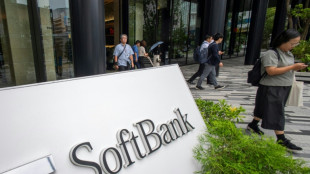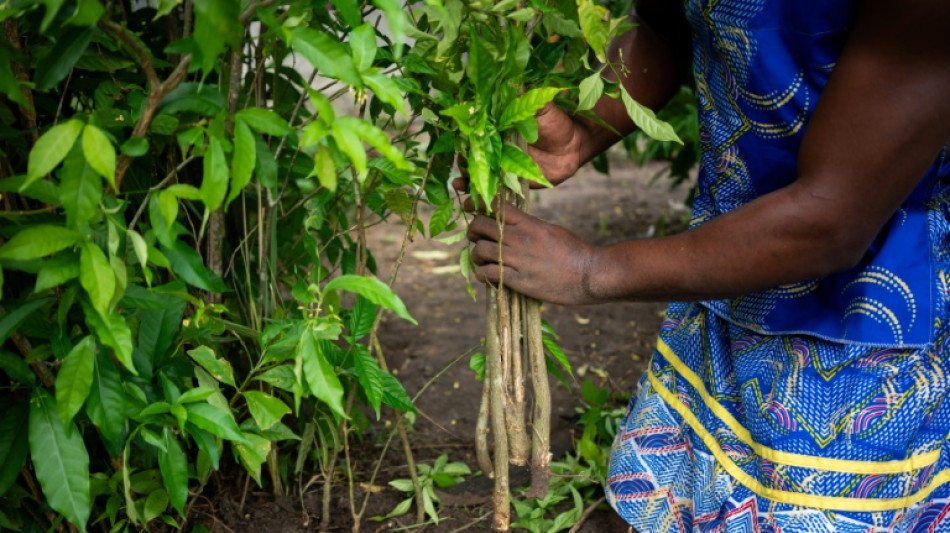
-
 Israel to 'take control' of Gaza City after approving new war plan
Israel to 'take control' of Gaza City after approving new war plan
-
Australian A-League side Western United stripped of licence

-
 'Back home': family who fled front buried after Kyiv strike
'Back home': family who fled front buried after Kyiv strike
-
Indonesia cracks down on pirate protest flag

-
 Israeli army will 'take control' of Gaza City: PM's office
Israeli army will 'take control' of Gaza City: PM's office
-
Australian mushroom murderer accused of poisoning husband

-
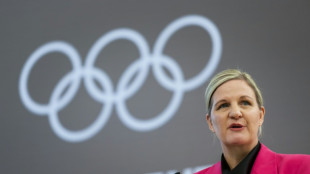 Coventry's mettle tested by Russian Olympic debate, say former IOC figures
Coventry's mettle tested by Russian Olympic debate, say former IOC figures
-
Library user borrows rare Chinese artwork, returns fakes: US officials
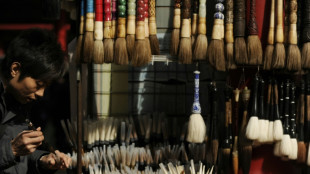
-
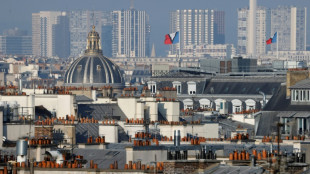 Parisians hot under the collar over A/C in apartments
Parisians hot under the collar over A/C in apartments
-
Crypto group reportedly says it planned sex toy tosses at WNBA games
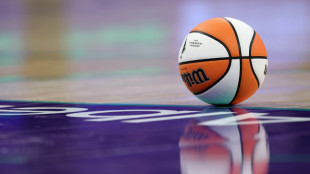
-
 American Shelton tops Khachanov to win first ATP Masters title in Toronto
American Shelton tops Khachanov to win first ATP Masters title in Toronto
-
Tokyo soars on trade deal relief as Asian markets limp into weekend
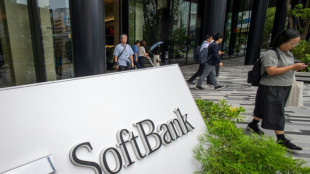
-
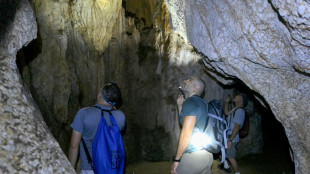 New species teem in Cambodia's threatened karst
New species teem in Cambodia's threatened karst
-
Australian mushroom murderer accused of poisoning husband: police

-
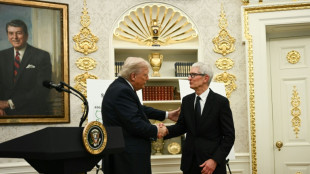 Solid gold, royal missives and Nobel noms: how to win Trump over
Solid gold, royal missives and Nobel noms: how to win Trump over
-
Canadian teen Mboko outlasts Osaka to win WTA Montreal crown
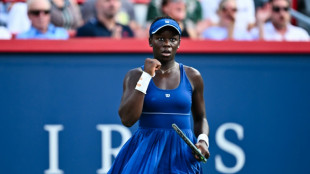
-
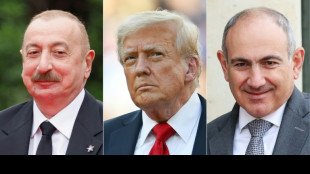 Trump to host Armenia, Azerbaijan for historic 'Peace Signing'
Trump to host Armenia, Azerbaijan for historic 'Peace Signing'
-
Israeli airline's Paris offices daubed with red paint, slogans
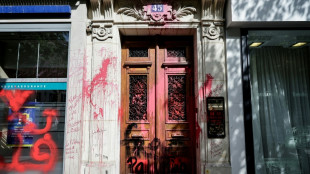
-
 US raises bounty on Venezuela's Maduro to $50 mn
US raises bounty on Venezuela's Maduro to $50 mn
-
Lebanon cabinet meets again on Hezbollah disarmament

-
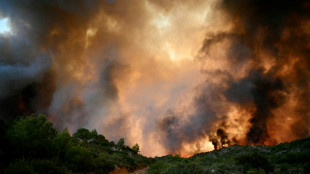 France's huge wildfire will burn for days: authorities
France's huge wildfire will burn for days: authorities
-
Bolivia right-wing presidential hopeful vows 'radical change'
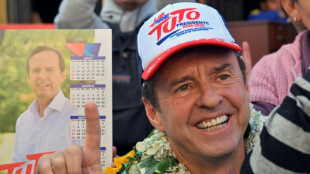
-
 Trump says would meet Putin without Zelensky sit-down
Trump says would meet Putin without Zelensky sit-down
-
Trump offers data to justify firing of labor stats chief
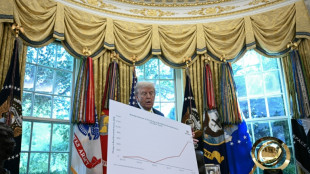
-
 Bhatia leads by one at PGA St. Jude, Scheffler five adrift
Bhatia leads by one at PGA St. Jude, Scheffler five adrift
-
Disney settles Trump-supporting 'Star Wars' actor lawsuit

-
 Trump moves to kill $7 billion in solar panel grants
Trump moves to kill $7 billion in solar panel grants
-
Venus Williams falls at first hurdle in Cincinnati
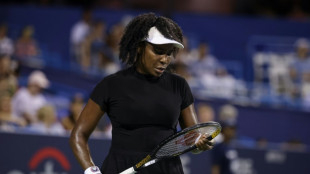
-
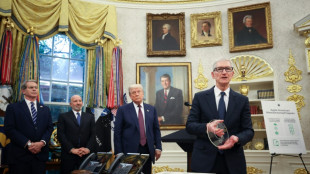 Mixed day for global stocks as latest Trump levies take effect
Mixed day for global stocks as latest Trump levies take effect
-
SpaceX agrees to take Italian experiments to Mars

-
 US judge orders temporary halt to new 'Alligator Alcatraz' construction
US judge orders temporary halt to new 'Alligator Alcatraz' construction
-
US uses war rhetoric, Superman to recruit for migrant crackdown
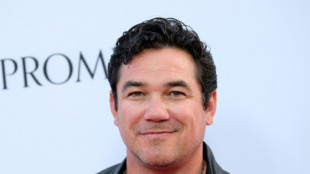
-
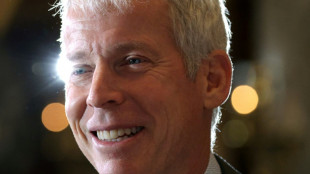 US to rewrite its past national climate reports
US to rewrite its past national climate reports
-
U can't pay this: MC Hammer sued over delinquent car loan

-
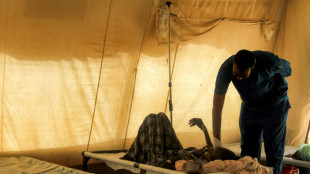 WHO says nearly 100,000 struck with cholera in Sudan
WHO says nearly 100,000 struck with cholera in Sudan
-
Huge wildfire in southern France now under control
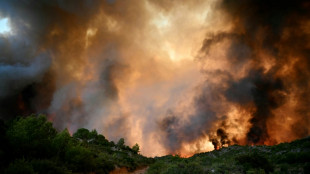
-
 Kane scores as Bayern thump Spurs in pre-season friendly
Kane scores as Bayern thump Spurs in pre-season friendly
-
France strikes down return of banned bee-killing pesticide
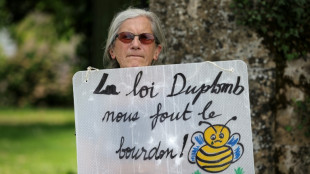
-
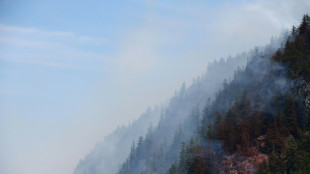 Canada sends troops to eastern province as fire damage grows
Canada sends troops to eastern province as fire damage grows
-
OpenAI releases ChatGPT-5 as AI race accelerates

-
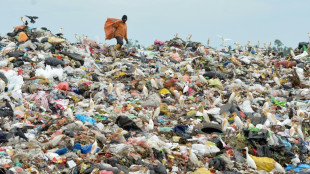 Plastic pollution treaty talks deadlocked
Plastic pollution treaty talks deadlocked
-
A French sailor's personal 'Plastic Odyssey'
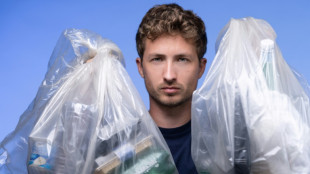
-
 Netanyahu says Israel to control not govern Gaza
Netanyahu says Israel to control not govern Gaza
-
Partey signs for Villarreal while on bail for rape charges

-
 Wales have the talent to rise again, says rugby head coach Tandy
Wales have the talent to rise again, says rugby head coach Tandy
-
US partners seek relief as Trump tariffs upend global trade
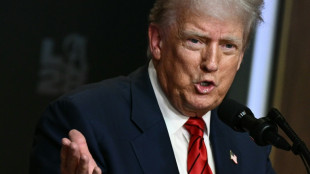
-
 Five England players nominated for women's Ballon d'Or
Five England players nominated for women's Ballon d'Or
-
PSG dominate list of men's Ballon D'Or nominees

-
 Americans eating (slightly) less ultra-processed food
Americans eating (slightly) less ultra-processed food
-
Man Utd agree 85m euro deal to sign Sesko: reports

| RBGPF | -5.79% | 71.84 | $ | |
| RYCEF | -0.42% | 14.44 | $ | |
| CMSC | 0.04% | 22.96 | $ | |
| CMSD | -0.09% | 23.52 | $ | |
| NGG | -0.31% | 72.08 | $ | |
| RIO | 1.12% | 60.77 | $ | |
| GSK | 2.21% | 37.58 | $ | |
| SCS | 0.06% | 16 | $ | |
| BCC | 0.32% | 83.19 | $ | |
| SCU | 0% | 12.72 | $ | |
| BCE | 2.23% | 23.78 | $ | |
| VOD | -0.36% | 11.26 | $ | |
| RELX | 1.03% | 49.32 | $ | |
| JRI | 0.52% | 13.41 | $ | |
| AZN | 1.3% | 74.57 | $ | |
| BTI | 0.51% | 56.69 | $ | |
| BP | 0.91% | 34.19 | $ |

Gabon longs to cash in on sacred hallucinogenic remedy
Beneath yellow fruit, hidden within the roots of the iboga plant in the forests of Gabon, lies a sacred treasure that the country is keen to make the most of.
For centuries, religious devotees have eaten it -- a psychotropic shrub that users say has addiction-fighting powers.
It fascinates foreign visitors, psychiatric patients and rich pharmaceutical companies that want to market it.
Now this central African country, where its use is enshrined in ancestral tradition, is scrambling to avoid missing out on the boom.
Teddy Van Bonda Ndong, 31, an initiate in the Bwiti spiritual tradition, calls it "sacred wood". He consumes it in small amounts daily, he said, for his "mental and physical health".
"It has a lot of power to help human beings," added Stephen Windsor-Clive, a 68-year-old retiree.
"It's untapped. A mysterious force lies within this plant."
He travelled to Gabon from Britain and consumed iboga -- in a powder ground from its roots -- during a 10-day Bwiti ceremony.
He tried it with a view to adopting it as a treatment for his daughter, who suffers from mental illness.
- Economic potential -
Given the interest, Gabon is seeking to channel the plant onto the international marketplace.
Exports of iboga products, including its active ingredient ibogaine, are few and strictly regulated in the country.
It grows mostly in the wild, but "more and more effort is being made to domesticate the plant", said Florence Minko, an official in the forestry ministry.
Potentially toxic in high doses, ibogaine can have effects similar to LSD, mescaline or amphetamines, and cause anxiety and hallucinations.
But users believe it can help drug addicts kick their habit and treat post-traumatic stress and neurological illnesses.
Yoan Mboussou, a local microbiologist and Bwiti initiate, hopes to gain an export licence for the 500-milligram ibogaine capsules he produces at his laboratory near the capital Libreville.
He sells them in Gabon as a food supplement, declaring them to have "anti-fatigue, antioxidant and anti-addictive" qualities.
Iboga, he believes, "is a potential lever to develop the economy and the whole country".
- Tradition and IP -
Countries such as the United States and France class iboga as a narcotic because of health risks identified in studies, especially heart issues. But it is used in treatment centres in countries including the Netherlands, Mexico and Portugal.
Numerous studies have examined its effects -- both helpful and harmful -- and scientists have taken out dozens of international patents for ibogaine therapeutic treatments.
"Most of those are based on studies of iboga use by Gabonese people, particularly by Bwiti practitioners," said Yann Guignon, from the Gabonese conservation group Blessings Of The Forest.
Despite the plant's "colossal therapeutic benefits", "Gabon is clearly missing out on the economic potential of iboga," he added.
"It did not position itself in this market in time by developing productive iboga plantations, a national processing laboratory and a proper industrial policy."
Overseas laboratories meanwhile have worked out how to make synthetic ibogaine and to extract it from other plants, such as Voacanga africana.
That flowering tree is available in greater quantities in Ghana and Mexico, which "can produce ibogaine at unbeatable prices", said Guignon.
And "Gabonese traditional knowledge is not protected by intellectual property regulations."
Currently only one company in Gabon has a licence to export iboga products -- though Minko, from the forestry ministry, said the country hopes this number will rise in the coming years.
She said companies were likely to produce more, spurred by revenue guarantees under the Nagoya Protocol, an international agreement on biological diversity and resource-sharing.
She wants the country to obtain a "made in Gabon" certificate of origin for iboga.
"This is a huge resource for Gabon. We have drawn up a national strategy for the conservation and sustainable use of the product," she said.
"Gatherings will soon be organised, bringing together all the groups concerned: NGOs, traditional practitioners and scientists."
- Soothing properties -
After harvesting iboga to the sound of traditional harps and consuming it in the initiation ceremony, Stephen Windsor-Clive was convinced by the benefits of iboga.
"I definitely want to bring my daughter here and have her have the experience," he said.
"This is my last attempt to find something which might be of assistance to her."
Another visitor, Tafara Kennedy Chinyere, travelled from Zimbabwe to discover Gabon and found, in the initiation, relief from anxiety and his "inner demons".
"I feel good in my body, in myself," he said, sitting under a tree after the ceremony.
"I feel like the iboga helped me to let go of things that you no longer need in your life."
Y.Shaath--SF-PST

